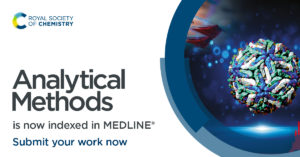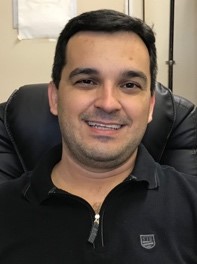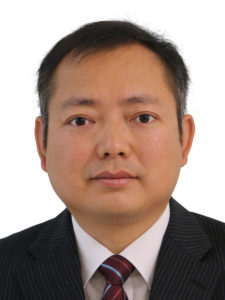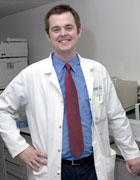We are delighted to introduce our latest Analytical Methods Emerging Investigator, Ashu Agarwal.
Ashu Agarwal is an Assistant Professor of Biomedical Engineering and Associate Director of the Dr. John T Macdonald Foundation Biomedical Nanotechnology Institute at the University of Miami. His undergraduate degree from Indian Institute of Technology, and his PhD from University of Florida are both in Materials Science and Engineering. He then gathered postdoctoral research experience in Biomedical Engineering at Columbia University, and at the Wyss Institute for Biologically Inspired Engineering at Harvard University. The mission of his Physiomimetic Microsystems Laboratory at the University of Miami is to develop human relevant organ mimic platforms for discovery of therapies and drugs, for modeling of disease states, for conducting mechanistic studies, and for differentiation, maturation and evaluation of stem cells. The lab is supported by multiple NIH consortium grants, early stage commercialization grants from Wallace H. Coulter Foundation, and a sponsored research project from Mallinckrodt Pharmaceuticals.
Read Ashu’s Emerging Investigator Series paper ‘Integrated platform for operating and interrogating organs-on-chips‘ and find out more about him in the interview below.
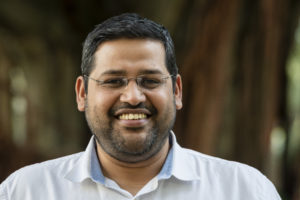
1. Your recent Emerging Investigator Series paper focuses on an integrated platform for the operation and interrogation of organs-on-a-chip. How has your research evolved from your first article to this most recent article?
My graduate work focused on developing nanorobots from biomolecular motors (kinesin) and associated filaments (microtubules). It led to very cool science and good quality papers. I started developing organ on chip applications during my postdoc at Harvard. The first article from my own research lab described a strategy to develop large volume fluidic chips constructed from inert plastic materials (completely PDMS-free) that are reversibly sealed, and ideally suited for organoid and spheroid cultures (Lab on a Chip, 2017, 17, 772 – 781). The article was highlighted as cover and selected as ‘top hot’ article based on peer-review scores. This recent article (Analytical Methods, 2019, 11, 5645 – 5651) describes the development of the hardware ecosystem that a user often needs to operate organ chips. While designing robust organ chips for culturing organoids/spheroids/islets is a major thrust area in my lab, it also important to remove barriers to operate and interrogate those chips using integrated hardware control systems.
2. What aspect of your work are you most excited about at the moment?
Through two recent awards from the NIH, we are embarking on creating human relevant models of two very different diseases: replicating the human islet-immune interactions that lead to type 1 diabetes, and phenotyping the circulating tumor cells and exosomes that lead to metastatic dissemination of breast cancer.
3. In your opinion, what are the key design considerations for developing effective platforms for simple operation of organs-on-a-chip?
Often, hooking up organ chips to pumps, valves and switches at the inflow, and effluent fraction collectors at the outflow, becomes an impediment to the adoption of chip technology by disease biology labs or pharmaceutical industry. An integrated fluid handling platform with associated computer program should help remove those barriers. In addition, an effective fluid platform would also allow integration with imaging platforms, easy connection and detachment of the chip, and reversible access to biological constructs.
4. What do you find most challenging about your research?
Finding the balance between over-designing features (a common engineering trap in academic labs), and not embedding enough functionality for the technology to be useful for the intended end-users.
5. How do you spend your spare time?
I love reading non-fiction, usually biographies, or stories/case-studies of companies and institutions.
6. Which profession would you choose if you were not a scientist?
I never thought I would be a scientist. Either a heavy machinery operator, or an offensive linemen, or an entrepreneur. Hopefully, none of those options are still off the table!
7. Can you share one piece of career-related advice or wisdom with other early career scientists?
Create a microenvironment where innovation is celebrated. Keep telling your troops that they can achieve anything they set their minds to; because they often can.
Comments Off on Emerging Investigators Series – Ashu Agarwal













